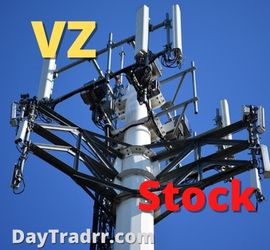CSCO Stock – What Investors Should Know About Cisco Systems
 Cisco Systems, (CSCO stock) makes and sells networking, security, collaboration, and cloud computing technologies that power the Internet. Cisco Systems is the world’s largest networking solutions hardware and software supplier. The infrastructure platforms category includes switching, routing, data center, and wireless hardware and software. Its application portfolio includes products for collaboration, analytics, and the Internet of Things. Cisco’s firewall and software-defined security products are included in the security segment. Cisco’s services include technical support and advanced services.
Cisco Systems, (CSCO stock) makes and sells networking, security, collaboration, and cloud computing technologies that power the Internet. Cisco Systems is the world’s largest networking solutions hardware and software supplier. The infrastructure platforms category includes switching, routing, data center, and wireless hardware and software. Its application portfolio includes products for collaboration, analytics, and the Internet of Things. Cisco’s firewall and software-defined security products are included in the security segment. Cisco’s services include technical support and advanced services.
The company’s extensive hardware portfolio is supplemented by software-defined networking, analytics, and intent-based networking solutions. Its revenue model is focused on increasing subscriptions and recurring sales in collaboration with Cisco’s initiative on growing software and services. The firm operates through the following geographical segments: the Americas, EMEA (Europe-Middle East-Africa), and APJC (Asia Pacific-Japan-China). The company was founded by Sandra Lerner and Leonard Bosack on December 10, 1984, and is headquartered in San Jose, CA.
- Secure, Agile Networks – consists of its core networking technologies of switching, enterprise routing, wireless, and computing products.
- Internet for the Future – consists of its routed optical networking, public fifth generation (5G), silicon, and optics offerings.
- Collaboration – consists of its Collaboration Devices, Meetings, Calling, and contact center offerings.
- End-to-End Security – consists of its overall security offerings.
- Optimized Application Experiences
- Other Products and Services
CSCO Stock: Annual Reports – Financials – SEC Filings
Cisco Systems, Inc. is incorporated in the state of Delaware. Cisco Systems, Inc is primarily in the business of computer communications equipment. For financial reporting, their fiscal year ends on July 31st. This page includes all SEC registration details as well as a list of all documents (S-1, Prospectus, Current Reports, 8-K, 10K, Annual Reports) filed by Cisco Systems, Inc.
Cisco Systems, Inc. is the world’s largest networking solutions hardware and software supplier. The Company’s technology categories include Secure, Agile Networks; Internet for the Future; Collaboration; End-to-End Security; Optimized Application Experiences; Other Products, and Services. Specific product categories include Switches, Routers, Wireless, Network Management Interfaces and Modules, Optical Networking, Access Points, Outdoor and Industrial Access Points, Next-Generation Firewalls, Advanced Malware Protection, VPN Security Clients, Email, and Web Security.
CSCO Stock Dividend
Cisco Systems’ previous ex-dividend date was on Oct 04, 2022. Cisco Systems shareholders who own CSCO stock before this date received Cisco Systems’s last dividend payment of $0.38 per share on Oct 26, 2022. CSCO’s annual dividend yield is 3.16%. The past year’s earnings per share were $2.77, and its annual dividend per share is $1.51. CSCO’s dividend payout ratio is 44.32% ($1.51/$2.77) which is sustainable.
CSCO Stock Forecast
CSCO stock forecast is based on 14 Wall Street analysts offering 12-month price targets for Cisco Systems in the last 3 months. The average price target is $54.50 with a high forecast of $67.00 and a low forecast of $44.00. The average price target represents a 14.04% change from the last price of $47.79. As of November 2022, CSCO stock was recommended as a “moderate buy” (Source: tipranks.com)
Is CSCO Stock a Buy?
Cisco’s stock has lost more than a quarter of its value in 2022. It appears investors are worried about the company’s supply chain issues and shrinking gross margins. However, its first-quarter report for fiscal 2023 suggests that those issues are temporary. Moreover, the company is still well-positioned to generate consistent growth for the foreseeable future.
At $46 per share, Cisco trades at just 13 times this year’s earnings. It also pays an attractive forward dividend yield of 3.3%, which accounts for less than half of its projected EPS for fiscal 2023. By comparison, Cisco’s smaller rival Juniper Networks also trades at 13 times forward earnings but pays a lower forward dividend yield of 2.8%. Cisco certainly isn’t a stock for growth-oriented investors. However, investors who are looking for a stable blue-chip tech stalwart that is cheap and generates consistent dividends should consider picking up some shares today. (Source: fool.com)
CSCO Stock – Risk Factors
Cisco’s operating results may be adversely affected by unfavorable economic conditions and the uncertain geopolitical environment.
Challenging economic conditions may continue to contribute to slowdowns in the communications and networking industries. Rising inflation and other geopolitical and economic changes influence specific segments and markets in which Cisco operates. The result is lower demand for products due to continued constraints on IT-related capital spending by key customers and service providers. The global macroeconomic environment continues to be challenging and volatile, with the COVID-19 pandemic having a significant impact. In previous periods, the company saw a broad-based weakening in the global macroeconomic environment. This weakness impacted and may continue to impact markets in the future. Global economic and market conditions, or economic conditions in key markets, remain uncertain. As a result, the company’s business, operating results, and financial condition may suffer materially.
- Competition – Increased price competition for products. Not only from our competitors but also as a consequence of customers disposing of unutilized products.
- Outdated inventories – The risk of excess and obsolete inventories. Also, higher overhead costs as a percentage of revenue and higher interest expense.
- Supply chain impairment – The risk of supply constraints resulting in excess facilities and manufacturing capacity.
- Global credit markets – Instability in the global credit markets and the impact of uncertainty regarding global central bank monetary policy,
- Geopolitical uncertainty – Instability in the geopolitical environment in many parts of the world. For example, the ongoing Russia and Ukraine war, and China-Taiwan relations.
- Mainland China regulatory environment – The current economic challenges in China. This includes the global economic ramifications of Chinese economic difficulties. Also, other disruptions may continue to put pressure on global economic conditions.
Cisco’s revenue for a particular period is difficult to predict
The company’s revenue for a specific quarter is difficult to predict due to a variety of factors. This is particularly in light of a challenging and inconsistent global macroeconomic environment. For example, the Russia and Ukraine war, the significant impacts of the COVID-19 pandemic, and related market uncertainty. As a result, Cisco’s revenue may grow at a slower rate than in previous periods, as it did in the third quarter of fiscal 2022. Or, it may decline, as it did in the fourth quarter of fiscal 2022 and certain prior periods. In turn, Cisco’s ability to meet financial expectations could be jeopardized.
The timing of large orders can also have a significant impact on quarterly business and operating results. The company occasionally receives large orders. These have a significant impact on operating results in the period in which the order is recognized as revenue. It is difficult to predict the timing of such orders. Therefore, the timing of revenue recognition from such orders may affect revenue changes from one period to the next.
CSCO Stock and Debt
In general, debt becomes a real issue when a company cannot easily pay it off. Either through capital raising or through its own cash flow. Ultimately, if a company fails to meet its legal obligations to repay debt, shareholders may be left with nothing. However, a more common scenario is that it might raise new equity capital at a low price. In that case, it results in permanent shareholder dilution. Of course, debt can be a useful tool in business, particularly in capital-intensive industries. When examining debt levels, you must take both cash and debt levels into account.
Cisco Systems had US$9.52b of debt in July 2022, down from US$11.5b a year prior. But it also has US$19.3b in cash to offset that, meaning it has US$9.75b net cash. According to the last reported balance sheet, Cisco Systems had liabilities of US$25.6b due within 12 months, and liabilities of US$28.6b due beyond 12 months. Offsetting these obligations, it had cash of US$19.3b as well as receivables valued at US$10.5b due within 12 months. So its liabilities total US$24.4b more than the combination of its cash and short-term receivables. While Cisco Systems does have more liabilities than liquid assets, it also has net cash of US$9.75b. (Source: cisco.com/2022-annual-report)
CSCO Stock in the News
First quarter 2023 earnings: Revenues exceed analysts’ expectations (November 2022)
Revenue exceeded analyst estimates by 2.6%. Earnings per share (EPS) missed analyst estimates by 7.4%. Revenue is forecast to grow 3.6% p.a. on average during the next 3 years, compared to a 6.5% growth forecast for the US communications industry. Over the last 3 years on average, earnings per share has increased by 4% per year whereas the company’s share price has increased by 1% per year. First quarter 2023 results:
- EPS: US$0.65 (down from US$0.71 in 1Q 2022).
- Revenue: US$13.6b (up 5.7% from 1Q 2022).
- Net income: US$2.67b (down 10% from 1Q 2022).
- Profit margin: 20% (down from 23% in 1Q 2022). The decrease in margin was driven by higher expenses.
Up Next: VZ Stock – What Investors Should Know About Verizon Communications Inc.
 Verizon Communications Inc. (VZ Stock Ticker) provides communications, information, and entertainment products and services to consumers, businesses, and government entities. The company serves approximately 115 million retail connections, about 7 million broadband connections, and 4 million Fios video connections. Verizon’s wireline unit provides local telephone, long-distance, internet access, corporate networking, and digital TV services.
Verizon Communications Inc. (VZ Stock Ticker) provides communications, information, and entertainment products and services to consumers, businesses, and government entities. The company serves approximately 115 million retail connections, about 7 million broadband connections, and 4 million Fios video connections. Verizon’s wireline unit provides local telephone, long-distance, internet access, corporate networking, and digital TV services.
Verizon is now primarily a wireless company, accounting for 70% of revenue and nearly all operating income. It has 89 million postpaid and 4 million prepaid phone customers and connects another 24 million data devices, such as tablets, to its nationwide network, making it the largest wireless carrier in the United States. In addition, Verizon offers a range of telecom, managed network, security, and IT services to commercial and government clients. The company also sells electronic devices. For example, smartphones, tablets, laptop computers, netbooks, and other wireless-enabled connected devices, such as smartwatches and wearables.




